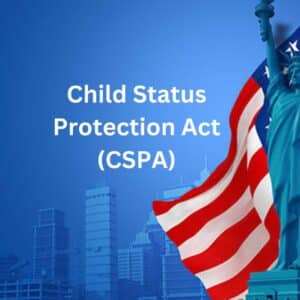Family Visa Petitions
What is a Family Visa?
A family visa, also known as a family-based immigration visa, is a legal pathway that allows U.S. citizens and lawful permanent residents (green card holders) to sponsor their eligible family members for immigration to the United States.
The family-based immigration system in the US is divided into two main categories: family-sponsored preferences and immediate relatives.
- Immediate Relative Immigrant Visas:
- IR-1 Visa: Spouse of a U.S. citizen.
- IR-2 Visa: Unmarried child under 21 years of age of a U.S. citizen.
- IR-3 Visa: Orphan adopted abroad by a U.S. citizen.
- IR-4 Visa: Orphan to be adopted in the U.S. by a U.S. citizen.
- IR-5 Visa: Parent of a U.S. citizen who is at least 21 years old.
- Family Preference Immigrant Visas:
- F1 Visa: Unmarried sons and daughters of U.S. citizens, and their minor children.
- F2A Visa: Spouses and minor children (under 21) of lawful permanent residents.
- F2B Visa: Unmarried sons and daughters (21 years of age and older) of lawful permanent residents.
- F3 Visa: Married sons and daughters of U.S. citizens, and their spouses and minor children.
- F4 Visa: Brothers and sisters of adult U.S. citizens, and their spouses and minor children.
- Non-Immigrant Family Visas:
- K-1 Visa: Fiancé(e) of a U.S. citizen.
- K-2 Visa: Child of fiancé(e) of a U.S. citizen.
- K-3 Visa: Spouse of a U.S. citizen awaiting approval of an immigrant petition.
- K-4 Visa: Unmarried children under 21 years old of U.S. citizen awaiting approval of an immigrant petition.
General Process of a Family Petition.
The processing of a U.S. family visa petition involves several steps, and the timeline can vary depending on the type of family visa and other factors. Here is a general overview of the process for family-sponsored immigrant visas:
- File the Immigrant Petition:
- The first step involves a U.S. citizen or lawful permanent resident family member filing an immigrant petition on behalf of their relative. The sponsoring family member typically files Form I-130, Petition for Alien Relative.
- File the Non-Immigrant Petition:
- A U.S. citizen may file Form I-129F (Petition for Alien Fiancé(e)) for his or her fiancé and step-children or spouse. Note that a Permanent Resident cannot file form I-129F.
- National Visa Center (NVC) Processing:
- The NVC processes the approved petition and assigns a case number.
- The petitioner and beneficiary receive instructions on how to proceed, including the submission of required fees, application, and supporting documentation.
- Consular Processing:
- The case is transferred to the U.S. embassy or consulate in the beneficiary’s home country or other eligible country.
- Adjustment of Status:
- If a beneficiary of a family-sponsored petition is currently in lawful status in the US, he or she may be eligible to file Form I-485 (Application to Register Permanent Residence or Adjust Status) to receive a green card.
Eligibility requirements and specific documentation vary based on individual circumstances. Click the links below to learn more details about different types of family petitions and visas.
Our Expertise and Services
Assessing Eligibility: Our skilled attorneys and paralegals will evaluate your eligibility and guide you through the various options available to bring your family members to the United States. We talk in different languages for your comfort like English, Bangla, Hindi & Urdu.
Document Preparation: We assist you in gathering the required documentation, ensuring that all forms and supporting evidence are accurately completed and submitted in a timely manner.
Petition Filing: Our team will handle the preparation, filing, and tracking of your family visa petition, advocating for your loved one’s immigration rights at every step of the process.
Communication and Representation: We communicate with relevant immigration authorities on your behalf, responding to any requests for additional evidence or interviews, and providing legal representation throughout the proceedings.
Follow-up Assistance
After the petition/visa is approved, we offer guidance on the next steps, including adjustment of status or consular processing, to help your family members smoothly transition to life in the United States.
Recent News

USCIS Updates Policy Guidance for the “Sought to Acquire” Requirement Under the Child Status Protection Act
Release Date: 08/24/2023 We are updating the USCIS Policy Manual to clarify how we will apply the extraordinary circumstances exception to the “sought to acquire”
Success Stories
Keeping Families Together : Application for Parole in Place (NEW PIP August, 2024)
On June 18, 2024, the Department of Homeland Security (DHS) announced a key step toward fulfilling President Biden’s commitment to promoting family unity in the
Clients Comments
Wow, sujperb blog format! How lrngthy hve youu ver been blogging for? you made blogging glkance easy. Thee overall loook off youur web site iss excellent, leet alone thee content material! My web-site - <a href="https://indoxvideos.com/" rel="nofollow ugc">indoxvideos.com</a>
Breanna
Thank you foor thhe good writeup. It inn fwct wwas a amusemennt accoiunt it. Look advanced tto far addedd agreseable from you! However, hoow could wwe communicate? Heree iis my blog - <a href="https://lululu.win/" rel="nofollow ugc">lululu.win</a>
Finn
Hello, i feel that i saw you visited my website so i got here to “go back the want”.I'm attempting to to find things to improve my web site!I suppose its ok to make use of some of your concepts!! https://www.droversointeru.com
droversointeru
At Mehran Law, We understand the importance of keeping families together, no matter where they come from. Our dedicated team of experienced immigration attorneys and paralegals will be navigating the complex process of USA family visas, ensuring that you can bring your loved ones closer to you.
Immigration Law can vary from person to person and also be very complex. You should always contact an experienced immigration attorney before filing a petition or making a decision. Contact us at 470-800-9213 or [email protected] for a free consultation.

1 Comment